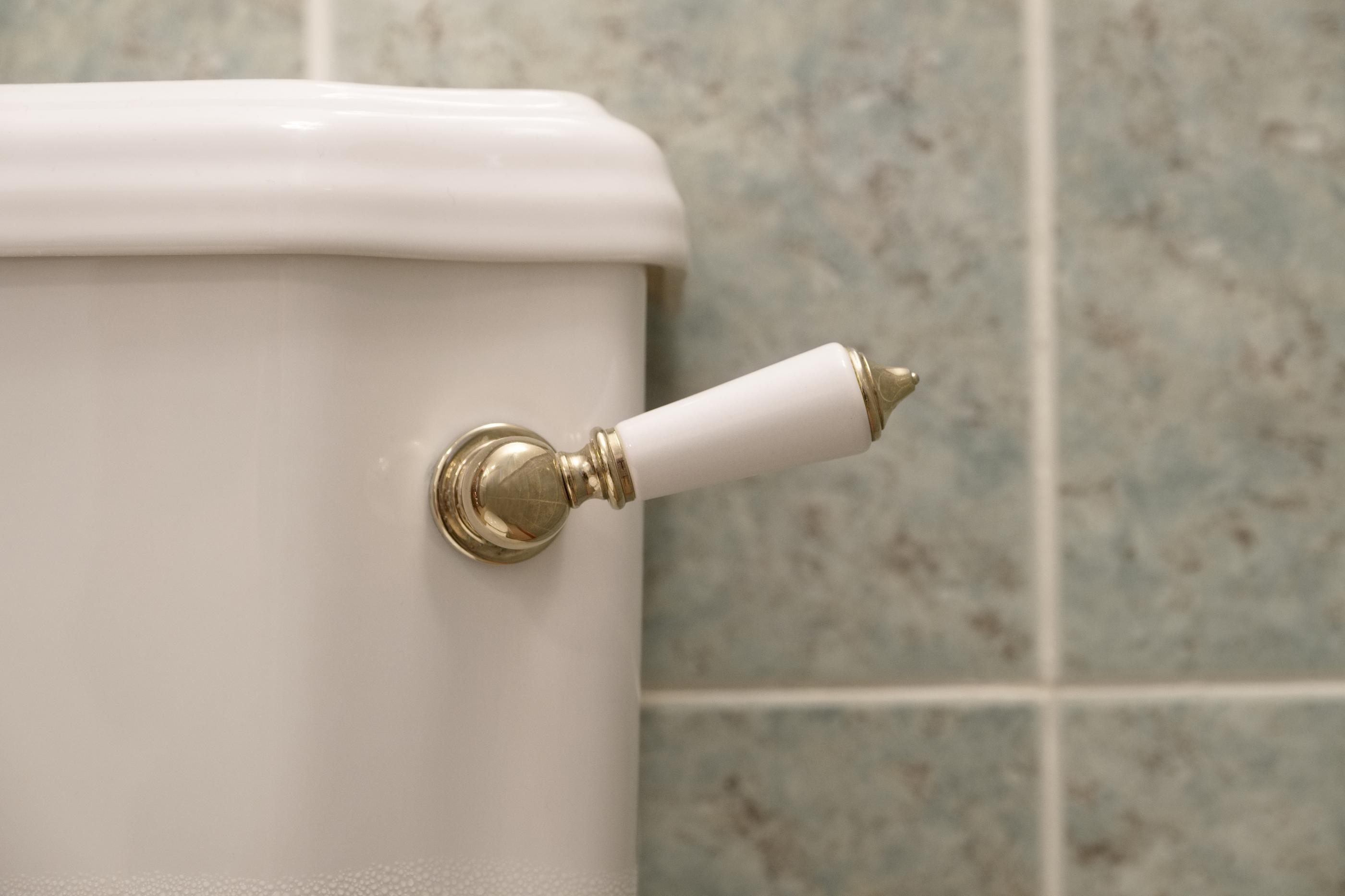
If there’s one thing you should be able to count on, it’s that your toilet will flush properly. But life isn’t fair. Toilets clog, and to make matters worse, they can overflow.
In your attempt to prevent raw sewage from spilling over onto your bathroom floor, you may be frantically searching “how to stop toilet from overflowing.” Follow this professional plumbing guide to learn how to stop overflowing toilets.
First, Ask Yourself “Why Is My Toilet Overflowing?”
Knowing what’s causing the issue will help you find the correct solution faster. Some common causes of an overflowing toilet include:
- Clogged drain. If the drain is clogged with something (too much toilet paper, non-flushable items, waste, etc.), flushing the toilet will overflow inside the toilet bowl.
- Sewer line blockage or issue. This usually happens when non-flushable items are frequently disposed of in the toilet or external blockages such as tree roots or dirt clog up your main sewer line. If unclogging your toilet doesn’t resolve the issue, it could be a deeper blockage in your sewer line.
- Blocked vent pipe. Your plumbing drain line vents help release built-up gases from waste breakdown. If debris, leaves, dirt, or anything else covers these outdoor vents, it could result in frequent toilet overflowing.
- Broken toilet parts. A broken part or even just old age may be causing your toilet to overflow. Your filler float may be too high, causing water to spill over in the tank, or a damaged flapper could be improperly sealed, causing water to leak into the bowl and lead to overflowing.
How to Stop a Toilet from Overflowing
Stop It at the Source — Shut off the Water
When your toilet is overflowing, the most urgent action is to stop the flow of water into the bowl. The best place to do this is at the toilet’s main shut-off valve.
You can probably see a water line leading from your bathroom wall to the toilet and a hand-crank valve along that line. If you don’t see this hardware, your toilet’s valve may be hidden behind the wall or floor tiles, in which case you should talk to a plumber about modifications to provide easier access. Short of shutting off the main valve to your home, the toilet valve is the only way to entirely stop the flow of water!
But actually turning the valve can be challenging when it matters most. Since this valve usually stays open, often for years, it can be sticky — and may even rust in an open position.
Be proactive and give your toilet valve a few turns back and forth today. If it’s stubborn, spray it with a little lubricant until it turns freely. Going forward, close and reopen the valve every time you clean your bathroom. It only takes a few seconds, and it will help make sure you can close the valve in an emergency.
The Backup Plan — Adjust the Flapper
If your toilet is overflowing and you can’t get the shut-off valve to budge, your next stop should be to check the flapper. Remove the tank lid and look for a hinged rubber disc covering a hole at the bottom. If that disc (flapper) is open, reach in and close it manually. This should stop the flow of water.
If the flapper is not open, or if it won’t stay closed manually, find the float ball. This is the component that floats on the surface of the water and stops the tank from filling at a certain level. If you manually lift the float ball to the top of the tank, the water will shut off. However, this can be difficult if no one is home to help you. If lowering the float ball causes water to continue flowing into the bowl, you may need to prop the float ball up or hold it in place while you fight with the shut-off valve with your spare hand.
Clear the Clog
Once the overflow has been prevented, the final step is to clear the clog. If you have a toilet plunger, preferably one with a toilet flange, that should be your go-to tool.
Related Content: 5 Ways to Unclog a Toilet
Call a Plumber
Unless you know exactly how to fix an overflowing toilet, calling a professional for emergency plumbing services is the safest solution. Plumbing professionals will have the right tools and knowledge to identify the root of the issue and prevent future plumbing concerns.
Clear Your Clogs and Prevent Overflowing Toilets with Our Experts
For a toilet that won’t stop overflowing or a clog you can’t clear, rely on our professional plumbers at Benjamin Franklin Plumbing to tackle the job. We provide 24/7 emergency plumbing services and will get to the source of the issue. Call 1-877-BEN-1776, or request an appointment online.
